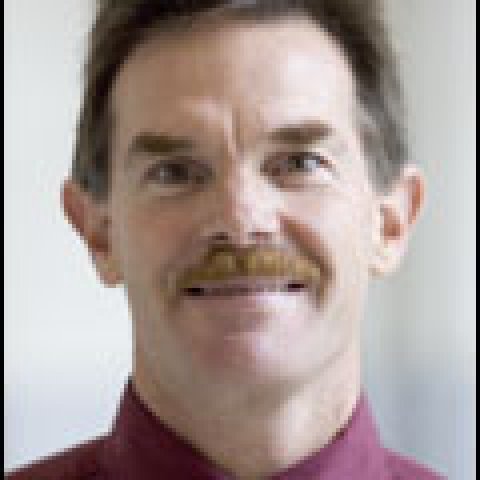Paul V Dutton
Fellow
Professional Affiliation
Associate Professor of European History, Northern Arizona University; Affiliated Scholar, Center on the United States and Europe, The Brookings Institution
Expert Bio
I grew up in Silicon Valley in the 1960s and 1970s, a place where innovation and change were as ordinary as sunrise and sunset. Yet my study of politics, first in California, then in France, taught me that some of the greatest problems in American society remained unsolved, seemingly a world apart from the rapid technological advances occurring around me. My earliest interest in the history of social reform and welfare policy stems from this paradox. Indeed, to the extent that technological breakthroughs in diagnosis, medical treatment, and pharmacology play a role in the present crisis of health care systems around the world, my project at the Woodrow Wilson Center represents a "perfect problem" in my scholarly career. I completed my undergraduate work in political theory at UC Santa Cruz; study in France further fueled my interest in social policy and its theoretical bases. As a young college student, European social democracies appeared to hold many of the answers to America's unsolved problems. This belief dictated my initial choice of international relations for graduate study. At Johns Hopkins I began advanced research on European social policy and demography, two fields that I came to understand as inherently linked, especially in the case of France. In fact, the sheer diversity of European experiences convinced me that history—with all its respect for the particular— would be the most appropriate field for my doctoral dissertation at UC San Diego. As a topic I chose French family policy between the world wars, a subject that had theretofore been passed over empirically and to which I applied the latest work in gender and class analysis.As a historian, I painstakingly avoid a presentist approach to my work; however, I forthrightly employ methods of historical inquiry and writing that highlight knowledge that can inform contemporary policy debates. My first book, Origins of the French Welfare State, attracted the attention of the Center on the United States and Europe at the Brookings Institution, where I eventually became an affiliated scholar. My work with Brookings is in large part responsible for the comparative scope of my present project. Comparative history in the service of policy formulation is a tricky endeavor, and no topic is trickier than health care. Health care systems are deeply embedded in a nation's cultural, economic, and political institutions. Pieces and practices cannot simply be compared like interchangeable parts of common machines. Indeed, it is precisely because the French system is founded on similar cultural beliefs regarding private medicine, patient choice, etc., which leads me to believe my project could make a substantial contribution to health care reform discussions. My conviction is, of course, bolstered by the 2001 World Health Organization (WHO) report which found that France has the best overall healthcare system among the 191 countries surveyed while the U.S. ranked 37th. The WHO rankings, however, do not mean the French system is unequivocally better than the American. But it does indicate that French practices possess undeniable strengths, such as universal coverage, that American leaders should understand as they debate competing reform proposals.
Education
B.A. (1984) Politics, University of California, Santa Cruz; M.A. (1992) International Economics and European Studies, School of Advanced International Studies, Johns Hopkins University;
Ph.D. (1997) European History, University of California, San Diego
Subjects
France,Health Care Reform
Experience
- Affiliated Scholar, Center on the United States and Europe, The Brookings Institution 2002-present
- Associate Professor of European History, Northern Arizona University, 2002-present
- Research Fellow, Health and Human Services Agency for Health Care Research and Quality, 2001-02
- Fellow, National Endowment for the Humanities, 2001-02
- Assistant Professor of European History, Northern Arizona University, 1997-2002
Expertise
European welfare states; social insurance and reform; health care systems; France
Wilson Center Project
"Health of Republics: Health Care in France and the United States during the Twentieth Century"
Project Summary
In 2001 the World Health Organization (WHO) ranked France's healthcare system the best in the world. This project will examine why France pursued universal health care, how it affected the medical professions, and with what effect on patients and patient care. Comparable and contrasting developments in the United States will be examined throughout. Such a history should be of special interest to Americans, because French physicians and patients remain firmly attached to what is known as la médecine libérale, whose most important principle is patient choice among private-practice physicians. As a cultural construction, liberal medicine remains as much a part of health care as medicine's positivistic methods and goals. Durable health care systems in France and the United States will depend on the simultaneous mastery of cost containment, efficiency of delivery, and equity of access. A comparative history could aid policymakers in both countries to understand how they can meet the challenges that lie ahead.
Major Publications
- Origins of the French Welfare State: The Struggle for Social Reform in France, 1914-1947 (Cambridge University Press, 2002)
- "La Médecine libérale rencontre le médecin syndicaliste," Bulletin de l'Histoire de la Sécurité Sociale, September-October, 2004
- "Healthcare in France and the United States: Learning From Each Other" Brookings Institution Policy Briefs, August 2002
- "An Overlooked Source of Social Reform: Family Policy in French Agriculture, 1936-1945," Journal of Modern History 72:2, June 2000, pp. 75-412

